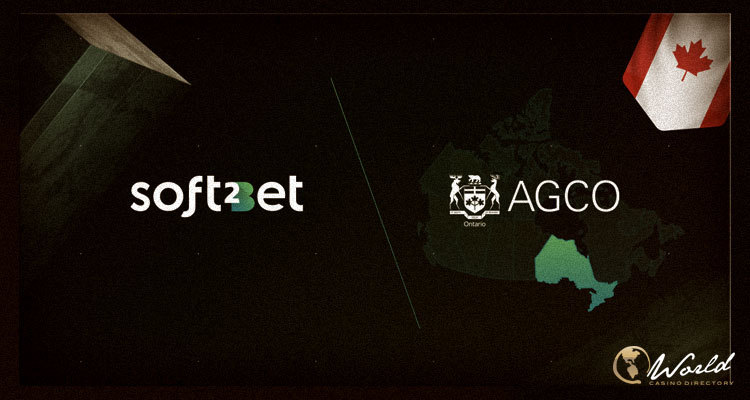
Understanding the Role of a Casino Tournament Manager
In the vibrant world of online gaming, the role of a casino tournament manager Soft2Bet casino tournament manager has emerged as a critical position. These individuals or teams are responsible for planning, organizing, and executing tournaments that attract players and create competitive excitement within gaming communities. This article will delve into the responsibilities, skills, and technologies involved in managing casino tournaments effectively.
1. What is a Casino Tournament Manager?
A casino tournament manager is a specialized professional tasked with overseeing casino tournaments, whether they occur in physical venues or online platforms. Their primary objective is to provide a seamless and engaging experience for participants, ensuring that the tournament runs smoothly from start to finish. This involves everything from setting rules and regulations to managing player registrations and overseeing prize distributions.
2. Key Responsibilities of a Casino Tournament Manager
The role of a casino tournament manager encompasses various tasks, each crucial to the tournament’s success:
- Planning and Organization: This involves defining tournament formats, schedules, and prize structures. To attract players, managers must create enticing tournaments that align with player preferences.
- Player Registration: Efficient management of player registrations is vital. This includes handling entry fees, confirming participant eligibility, and maintaining an accurate list of players.
- Compliance and Regulations: Tournament managers must ensure that all activities comply with relevant laws and regulations, which can differ significantly by jurisdiction.
- Technology Integration: Modern tournament management requires utilizing specialized software and tools that facilitate registrations, tracking player performance, and managing tournaments in real time.
- Customer Support: Providing excellent customer service to players before, during, and after the tournament is essential for building a loyal player base.

3. Skills Required for Successful Casino Tournament Management
To excel as a casino tournament manager, one needs a diverse skill set:
- Organizational Skills: Given the complexity of managing multiple tournaments and participants, strong organizational abilities are essential.
- Communication Skills: Managers must effectively communicate with players, vendors, and team members to ensure that everyone is on the same page.
- Technical Proficiency: Familiarity with gaming software and hardware, as well as understanding online platforms, is crucial in maintaining fair play and managing tournaments efficiently.
- Problem-Solving Abilities: Issues can arise at any tournament, from technical glitches to disputes among players. A good tournament manager must be adept at swiftly resolving such problems.
- Analytical Thinking: Reviewing tournament performance metrics and player feedback helps in improving future tournaments.
4. Technological Advances in Tournament Management
The casino industry has embraced technology, and tournament management is no exception. Several platforms and tools now facilitate tournament organization:
- Tournament Management Software: Tools like EasyPoker and Tournament Manager streamline the processes of registration, tracking player stats, and managing brackets.
- Online Platforms: With the rise of online gaming, many casinos offer virtual tournament settings that reach a global audience. This includes live streaming and real-time updates for remote participants.
- Data Analytics: Utilizing data analytics helps managers understand participant behaviors, preferences, and trends, allowing for tailored tournament experiences that maximize engagement.
5. Strategies for Engaging Players
Engaging players in tournaments is key to their success. Here are some effective strategies:

- Incentives and Bonuses: Offering attractive prizes and bonuses for early registrants or returning players increases participation.
- Effective Marketing: Utilizing social media, email campaigns, and partnerships with influencers can boost awareness and attract more participants.
- Diverse Tournament Formats: Offering various formats, such as knockout, round-robin, or satellite tournaments, caters to different player preferences and expands reach.
- Community Building: Fostering a sense of community among players through discussion forums, social media groups, and in-game communication enhances player loyalty.
6. Evaluating Tournament Success
After a tournament concludes, it’s essential to evaluate its success to inform future events:
- Player Feedback: Gathering player feedback through surveys can provide insights into what worked and what didn’t.
- Performance Metrics: Analyzing metrics such as player registrations, engagement rates, and prize distributions helps in measuring success.
- Financial Analysis: Reviewing profitability, including entry fees and sponsorship income against operational costs, ensures that the tournament is financially viable.
7. Future of Casino Tournament Management
As the gaming industry continues to evolve, so too will casino tournament management. Innovations in technology, such as the integration of virtual reality and artificial intelligence, promise to create even more engaging and immersive tournament experiences. Furthermore, as player expectations continue to rise, effective tournament managers must stay ahead of trends and continuously adapt their strategies.
Conclusion
The role of a casino tournament manager is undeniably multifaceted, requiring an amalgamation of skills, knowledge, and adaptability. By mastering these aspects and leveraging technology effectively, tournament managers can create thrilling and unforgettable gaming experiences for participants. As the industry progresses, staying informed and flexible will be key to navigating the future of casino tournaments.
